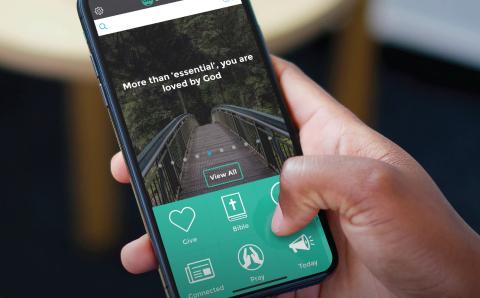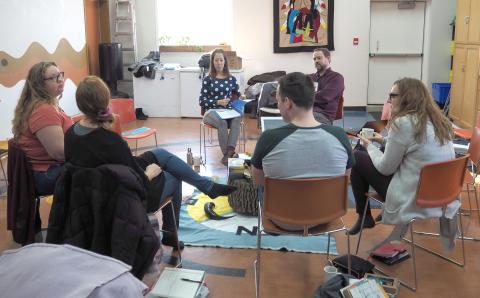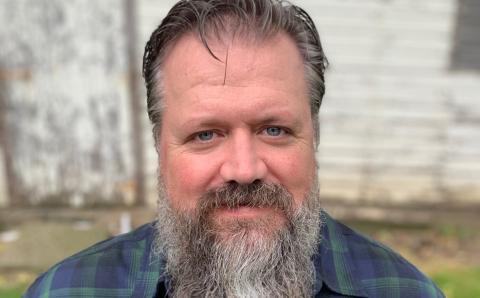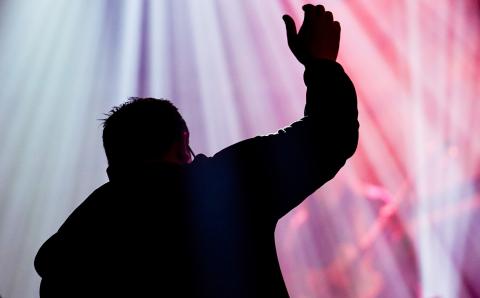Editor’s Note: The Banner is introducing this new column for perspectives from diverse voices that are less often heard in Christian Reformed forums: young people, people of color, and people living with disabilities.
“I wish it need not have happened in my time,” Frodo laments in The Fellowship of the Ring.
“So do I,” says Gandalf, “and so do all who live to see such times. But that is not for them to decide. All we have to decide is what to do with the time that is given us.”
“Such times” indeed. Frodo’s wish is not a very heroic sentiment, but it’s a relatable one. My rising generation feels the eyes of friends and enemies turning to us.
“Awareness” is a buzzword. Our countless feeds and messaging tools can ignite a chain reaction of outrage faster than Gondor’s beacons. The alarm sounds daily, it seems, particularly as our communities grapple with racial injustice. But what right has the young church to be weary already? We’re supposed to be angry, rattling sabers. One does not simply say “No, thank you” to a world-saving calling.
Are we the reluctant underdog hero of this story, though?
Among contemporary, archetypal epics, Frodo is a unique hero. He’s not exactly scrappy. Harry Potter is an abused child. Luke Skywalker is a farmhand. Katniss Everdeen is a marginalized, impoverished young woman. Most of our beloved stories expect us to identify with the persecuted. Christians also, our heroic roster full of martyrs, dwell more on everyman Peter than wealthy Zacchaeus. Perhaps we are uncomfortable with the idea that the transformation that comes with faith in Christ prompts us to repay four times over those we have wronged to enrich ourselves (Luke 19:8).
Frodo isn’t a teenage rebel, but an educated, land-owning gentleman. He has more in common with Pride and Prejudice’s Mr. Darcy than Luke Skywalker. Frodo is privileged. And young, white Christians, while we are not the salvific hero in the fight for racial justice, can learn from Frodo.
Both Frodo and the Elves inherit the problem of The One Ring. We also inherit a world, forged by our ancestors, with sin and good creations mixed. Frodo did not seek the power wrought by the art of the Elves. He received it in the course of a story set in motion before his birth. But Frodo and the Elves respond differently. Frodo moves, setting off on a dangerous journey to Mount Doom to destroy the Ring. The Elves take the role of scholars—advising, but seldom acting, except on the sidelines.
The Elves’ failure hits home for me as a writer. Words are important, but we have exaggerated the nobility and sufficiency of speaking truth to power. It’s not enough to shout instructions to Isildur as he stands above the fire or to condemn evil in a social media post or a conversation and take our place on the side of good for all to see.
The suggestion that we “use our privilege” is also perilous, because it justifies our possession of that privilege. You cannot use an evil to destroy itself. That was Boromir’s mistake. White privilege and the systems it shapes are set up to fuel our power by abusing others. Like the Ring, white privilege only works by consuming and corrupting. We can turn it to no other end. Every time we use it, it grows stronger. The only option is to destroy it.
Tolkien tells us plainly that doing the right thing is going to cost us. We will sacrifice time, money, and well-being. We will lose some of our innocence and contentment. Perhaps that means replacing joyful activities, luxuries, or opportunities with research, advocacy, and service.
Moreover, we must practice giving up our power. It’s going to hurt. We’ve been told the advantages, safety, and benefits rightfully belong to us. We love them. But in the time that is given to us, we must do the arduous work of destroying our precious evils.
About the Author
Emily Joy Stroble is a graduate of Calvin College, art maker, mocha drinker, and reader of many books. A regular contributor to The Banner and perpetual student of the world, Emily lives in Grand Rapids, Mich.






